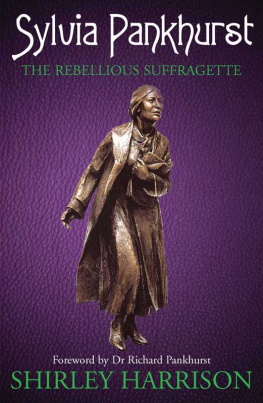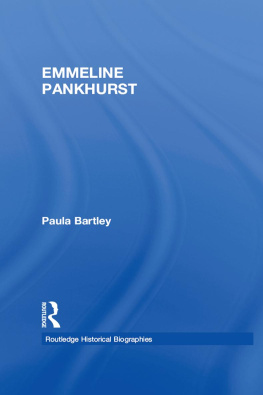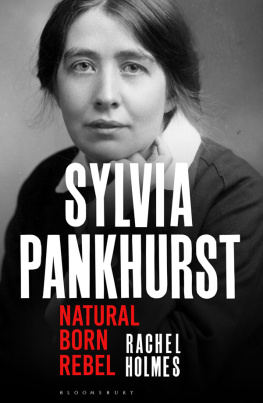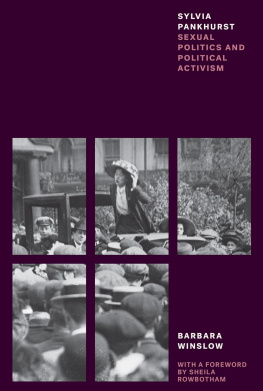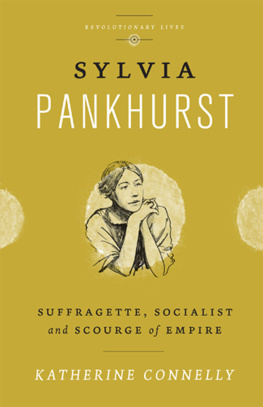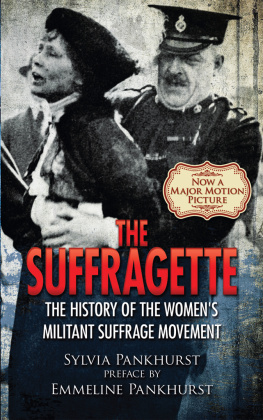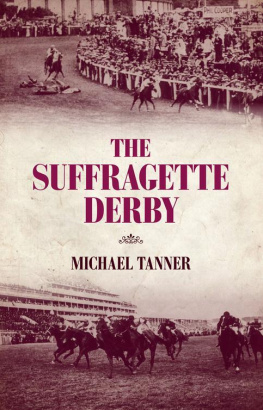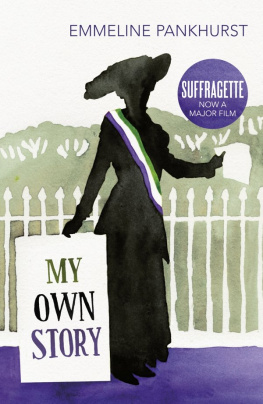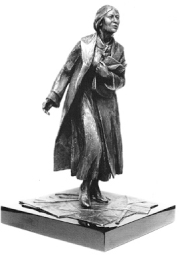Their aim was and is to commission a statue of Sylvia to be placed on a currently empty plinth on College Green outside the Houses of Parliament. The proposed sculptor was Ian Walters, winner of the Millennium Prize for portraiture. His previous sitters included Nelson Mandela, Harold Wilson and Trevor Huddlestone. His hope was to create a living portrait of Sylvia as she is remembered determined, energetic, eyes ahead and on the go.
In 2002, a trades union hall in Sheffield was re-named in Sylvias honour, and a model or maquette of the proposed statue was unveiled. Her old school, the Manchester School for Girls, also bought two maquettes to boost the memorial funds.
Ian died in 2006, but the work of the Committee is undaunted. They have met with parliamentary enthusiasm, but also some resistance from those who would prefer Nelson Mandela or Rodins Burghers of Calais to grace the site. The leading campaigner in Parliament is Baroness Brenda Dean. She says, There are now 70 cross-party members from both the House of Lords and the House of Commons and the enthusiasm is growing.
Acknowledgements
Doreen Montgomery, my special agent for over 30 years. Without her confident encouragement, the story of Sylvia Pankhursts courageous and turbulent life would not have been told.
Sally Evemy, my friend and colleague whose good-humoured, patient, nitpicking attention to detail kept me on course, as we attempted to sift our way through sometimes unassailable paper mountains of Sylvias own writings, and an unusually rich archive of those who knew her.
The time and energy that so many people have shared with us is a reflection of their warmth for Sylvias memory and their appreciation of her unique contribution to history. I hope we have forgotten no one, for we are grateful to them all:
The Pankhurst family Dr Rita and Dr Richard Pankhurst, Dr Helen Pankhurst and Dr Alula Pankhurst; Mieke Hermans at the IISG, for help and accommodation during our stay; Susan Hogan, Adela Pankhursts daughter; Sylvia Ayling, for putting me on the right road; Josephine Boyle, for her knowledge of Woodford; Leslie Powter, for sharing his childhood memories; the archivists at St Aubyns, Chigwell and Bancrofts Schools; Sandie OConnor of the Essex Art Club; Billie Figg, for acting as a link in the chain; Tudor Allen and the staff of the Redbridge Library Local Studies; Basil Taylor, for lending us his diary; John Lawenson, for help with Keir Hardie; Dr Arcadiu Petrescu, for his memories.
The National Federation of Womens Institutes; The Museum of Labour History, Manchester; The Ethiopian Embassy; The Novosti Press Agency; The Pankhurst Centre, Manchester; Tish Collins and the staff at Marx Memorial Library, London; The Historical Manuscripts Commission; Gail Cameron of the Womens Library; the staff at the Museum of London.
The late Caroline Benn; The Rt. Hon. Tony Benn; The Rt. Hon. Michael Foot; the late Baroness Castle; C.T. Isolani CBE LVO, Norah Smyths nephew; Maureen Nield, for her knowledge of Norah Smyth; Molly Cook, for her enthusiastic introduction to Sylvias paintings; Professor Ullendorff, Professor Emeritus of Semitic Languages at the School of Oriental and African Studies, London; Dr Catherine Hamlin of the Fistula Hospital, Addis Ababa, for time on the telephone.
Geoffrey and Jill Last; Sir Dennis and Lady Wright and John Gardner, for their hospitality and memories of Sylvia in Ethiopia; Barbara Winslow, Assistant Professor of History, Medgar Evans College, City University, London; Joanna Dunham, Amy Brownings niece; Simon Houfe, for sending excerpts from Sir Alfred Richardsons memoirs; lngleby Kernahan for his enthusiastic help on the life of Richard Pankhurst; Eric Pankhurst, for his work on the family tree; Richard Hardy Smith, bookseller in Wadhurst, Sussex, for his introduction to the Anglo-Ethiopian Society; Adrienne Hack of the Anglo-Ethiopian Society; Mr J.A. Flower of Penshurst; Marie Bird, President of the Woodford Bridge Townswomens Guild; Professor Joe White, University of Pittsburgh; Nancy Buckland, Jackson Library, Michigan; Giles Peppiatt, Bonhams Auctioneers; the staff at Fairfield House, Bath; Irene Cockcroft, Soroptomist International of Greater London; Megan Dobney of the Pankhurst Memorial Committee; The Random House Group Ltd, for permission to quote from Caroline Benns Keir Hardie, originally published by Hutchinson. My husband, Duncan Field, for being there.
Foreword
If My Mother were Alive Today
IF MY mother, Sylvia Pankhurst, were alive today, she would both mourn and rejoice at the changes which have taken place in the half century since her death in September 1960. She would have been happy that the winds of change had blown so strongly across Africa in the 1950s and 1960s that virtually the entire African continent is now independent. Colonialism and White Settler Domination, to both of which she was strongly opposed, have been almost completely eradicated, and racial prejudice, at which she protested, is very clearly on the decline.
She would, however, have grave reservations about the United Nations. Already during her lifetime, she denounced the distinction between Permanent Members, with Power of Veto, and Ordinary Members, with much more minimal voting rights. She felt then, and would feel still, that this system is basically unfair to the smaller states, and introduces a serious element of injustice into the entire UN system.
Though welcoming the advance of independence throughout Africa, she would have been pained to take note of the continents failure to progress in the direction of Kwame Nkrumahs Pan-African ideal of a United Africa.
While welcoming the economic assistance afforded to the countries of the developing world, particularly in time of famine or other disaster, she would be surprised that such aid is still slow in coming and that promises are often only partially fulfilled, sometimes completely ignored. She would also be saddened that the UN has thus far not established a permanent Task Force ready to go into action, whenever disaster threatens, as Germaine Greer advocated. Above all my mother would emphasise that the world community, in providing Emergency Aid, all too often ignores the need for Development Aid, with the result that emergencies, so far from being eradicated, are constantly re-appearing.

